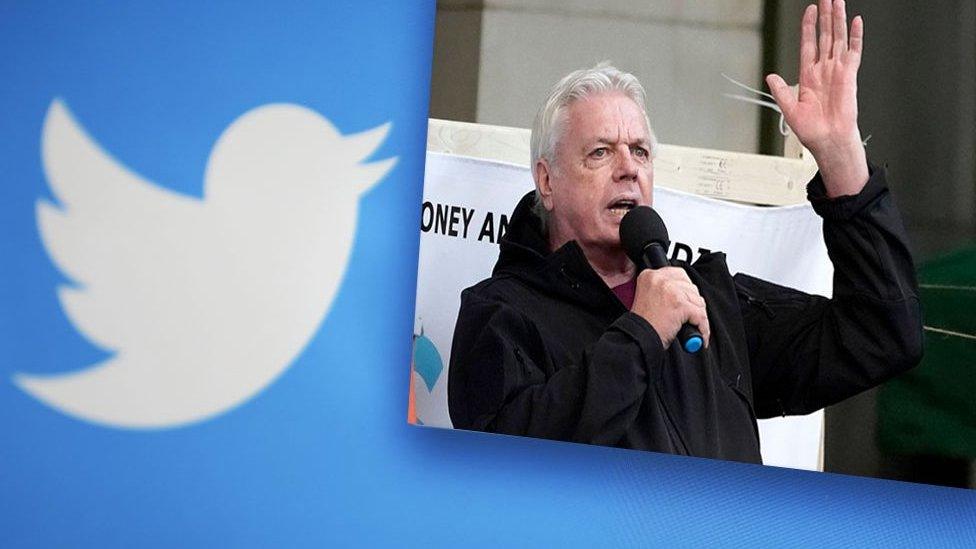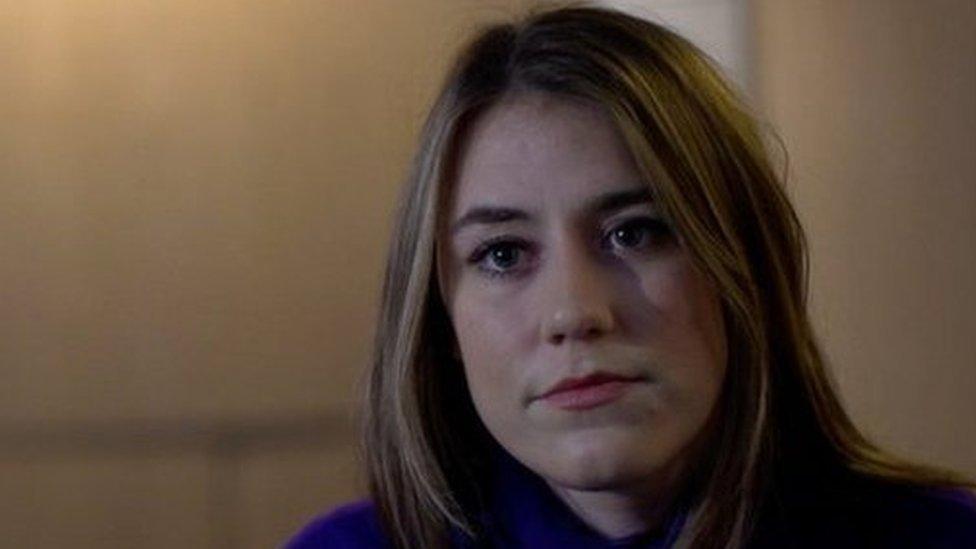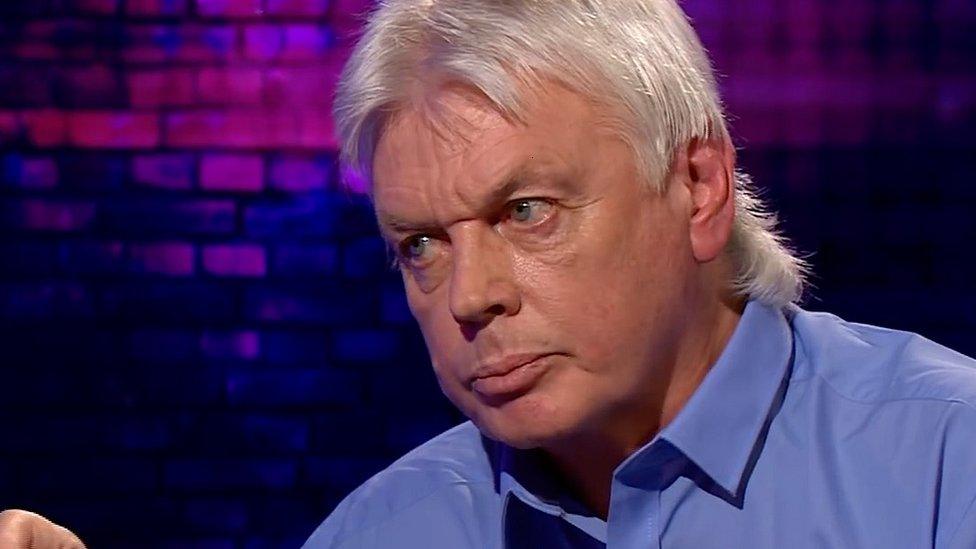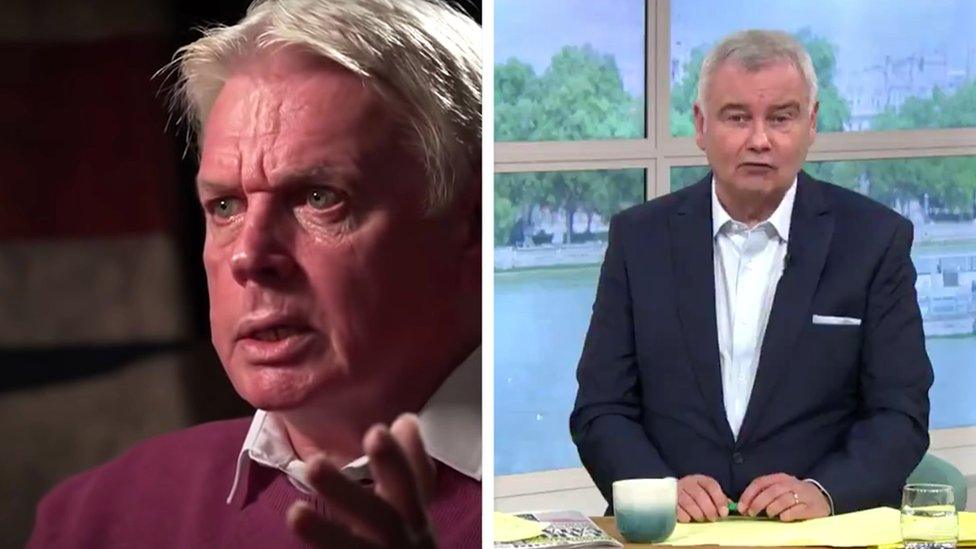Twitter bans David Icke over Covid misinformation
- Published

Twitter has banned the account of British conspiracy theorist David Icke.
"The account referenced has been permanently suspended for violating Twitter's rules regarding Covid misinformation," a spokesman told the BBC.
The action comes six months after Facebook and YouTube took similar action, saying Mr Icke had posted misleading claims about the pandemic.
The 68-year-old had about 382,000 followers on Twitter.
His recent posts had included attacks on Prime Minister Boris Johnson, US infectious disease expert Dr Anthony Fauci and the philanthropist Bill Gates.
In a blog, Mr Icke said was banned for a tweet he had made about plans to pilot city-wide coronavirus testing in Liverpool.
But over recent months he has made false claims such as suggesting that 5G mobile phone networks were linked to the spread of the virus, and that a Jewish group had also been involved.
Covid rules
Mr Icke has promoted fringe theories since the 1990s, but his recent return to prominence was propelled by the spread of Covid-19.
In April, an interview in which he discussed the pandemic was broadcast on local TV station London Live.
It led the regulator Ofcom to rule the channel's owner had broken broadcasting rules because the segment had failed to sufficiently challenge his "unsubstantiated views".
Twitter's rules do not include a general ban on misinformation.
But in July, it would not allow any tweets, external about Covid-19 that were "claims of fact, demonstrably false or misleading, and likely to cause harm". It added that accounts that repeatedly broke this rule would be permanently removed.
Some campaigners believe action against Mr Icke was long overdue.
"Twitter had allowed him to continue spreading... dangerous Covid misinformation for months," tweeted the Center for Countering Digital Hate, a UK-based campaign group, in response to the ban.
The US social network had earlier blocked another prominent British conspiracy theorist, Kate Shemirani.
Her account was taken offline on Thursday, with Twitter providing the same brief explanation for its removal.


Celebrities with large followings have been a key vector of misinformation throughout the coronavirus pandemic.
And one of the most prominent has been David Icke.
He has found himself in hot water with social media platforms over dangerous conspiracy theories promoted on his accounts.
He's also been a headliner at anti-lockdown rallies at Trafalgar Square in London, where coronavirus conspiracies - including linking 5G to Covid-19 and suggesting the pandemic is a hoax - have been given full-throated airings.
Icke is perhaps the best known member of Britain's conspiracy theory influencer community, all of whom have gained large followings during the pandemic by spreading disinformation.
Ms Shemirani is another leading influencer.
I recently interviewed her son. He said he was worried about the devastating impact coronavirus conspiracies can have on public health and family relationships.
- Published1 November 2020

- Published2 May 2020

- Published1 May 2020

- Published20 April 2020
